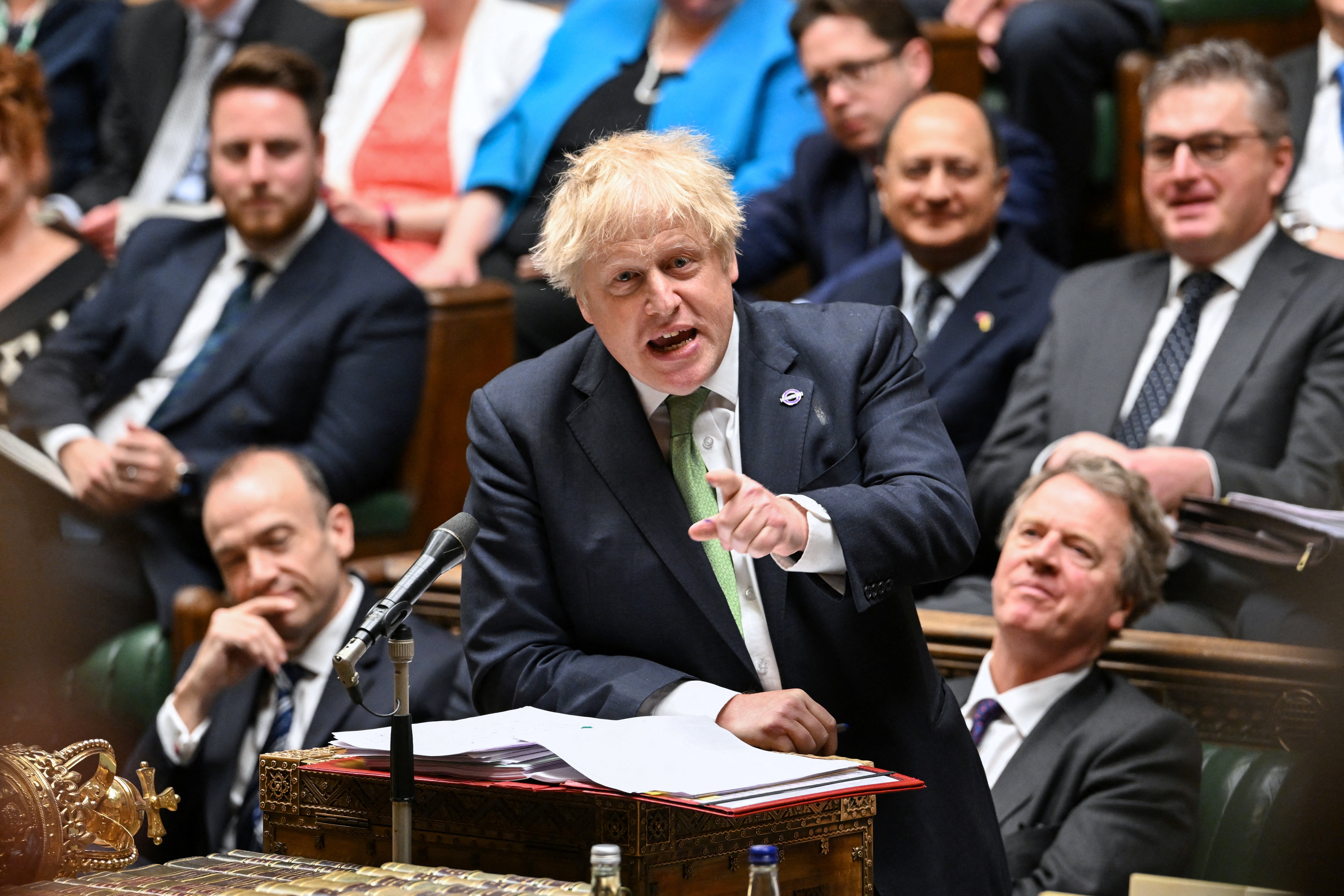Sadly for their opponents, the Tory Doomsday Scenario is flawed
Some ministers are worried that a change to the voting system means they will never win again, writes John Rentoul


The Conservative Doomsday Scenario is one that anti-Tories enjoy contemplating. Now it seems that some government ministers are dwelling on it too.
James Forsyth, the political editor of The Spectator, reports that some of them are worried that, “if the Tories lose the next election, changes to the voting system may see them locked out of office for a generation”. The party could “fall apart”, they say. “It is an existential threat.”
Fortunately for them – and unfortunately for those who dream of an anti-Tory “progressive alliance” – such a true blue apocalypse is less likely than it seems.
The first assumption of the scenario is correct: that a hung parliament is a likely outcome of the next election. It would not take much to deprive Boris Johnson of his majority. The Conservatives could win most votes – they could be two percentage points ahead of Labour in share of the vote – and still lose their majority.
And it is unlikely that Labour could win a majority of its own. It would need a swing greater than that achieved by Tony Blair in 1997. Therefore, the choice facing the British people at the next election is, in effect, that of another Tory majority, or a hung parliament in which Keir Starmer is prime minister.
There is a narrow band between the two – as wide as the Democratic Unionist Party, however many MPs it has in the next parliament, because it is the only party that could conceivably prop up a minority Tory government (although it might insist it was led by someone other than Johnson, who betrayed the DUP over the Irish border).
But apart from that statistical fluke, the choice is in essence between a Tory prime minister with a majority, and a Labour prime minister without one.
However, the next step in the argument for the Tory Doomsday Scenario is faulty. Forsyth reports that Conservatives are worried that Labour, having failed to win a majority for nearly two decades, “would be far more open to electoral reform – and this would be the price demanded by Lib Dems for their support in a hung parliament”.
Actually, that is two steps, and they are both questionable. One is that Labour MPs would be keener on proportional representation (PR) than they were in 2010, the last time there was a hung parliament in which the DUP couldn’t give the Tories a majority. The other is that Starmer would give the Lib Dems what they demanded.
I don’t think either is true. Gordon Brown was stymied in his attempt to promise the Lib Dems electoral reform, because Nick Clegg knew that he would struggle to get Labour MPs to vote for it. David Cameron’s offer of a referendum was more credible because he had more authority over his MPs, who were desperate to vote for anything that would get them into power.
Many Labour MPs remain adamantly opposed to PR, including Starmer himself, who organised the trade union block-vote at the Labour conference last year to crush the demands of local parties for electoral reform.
What’s more, Ed Davey, the Lib Dem leader, has sold the pass, making it clear that he would not prop up a Tory government. That means he has limited bargaining power. He cannot threaten to put the Tory leader in No 10 if Starmer refuses to give him PR. Not least because Starmer has limited delivery power. Even if Starmer wanted to, he couldn’t get a majority in parliament to vote for a PR system, because a large block of Labour MPs would refuse.
The Lib Dems would be in a similar position to that of the Scottish National Party: committed to keeping the Tories out, and therefore unable to insist on anything from Starmer in return. As prime minister of a minority Labour government, Starmer would be able to govern, daring the Lib Dems and the SNP to vote down legislation that he proposes.
To keep up to speed with all the latest opinions and comment sign up to our free weekly Voices Dispatches newsletter by clicking here
The worst that a Starmer minority government could do to the Tories would be to lower the voting age from 18 to 16. But that simply draws attention to the deeper flaw in the Tories’ apocalypto-pessimism: the idea that fiddling with the rules of democracy would shut them out permanently. There’s no structural reason that the Tories can’t appeal to younger people. Just as there is no fundamental obstacle to the Tories succeeding under PR.
Forsyth’s doom-mongers fretted about the effect of preferential voting in multi-member constituencies, saying the Tories would have won only two elections since the war under such a system. But who is to say how people would have voted under a different system, or what post-election alliances the party might have constructed?
The Conservatives may be uncoalitionable at the moment, but the Lib Dems did a deal with them in the past and they could do so again. The SNP is a trickier proposition, I accept, although it was instrumental in giving Johnson the election he wanted in 2019.
So, no, I don’t think a hung parliament would result in electoral reform, or another Scottish independence referendum. But even if it did, it wouldn’t necessarily lock the Tories out of office “for a generation”. The party known for its ruthless pursuit of power would find a way back.






Join our commenting forum
Join thought-provoking conversations, follow other Independent readers and see their replies
Comments